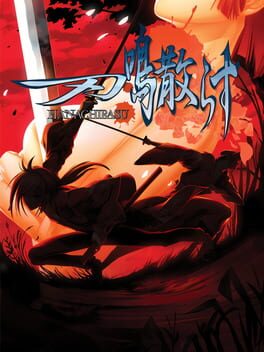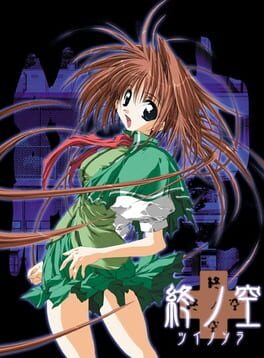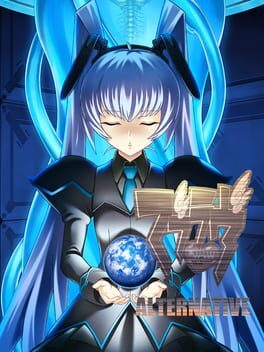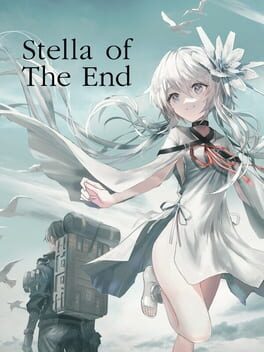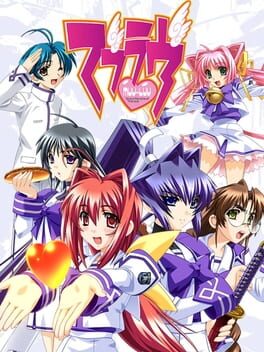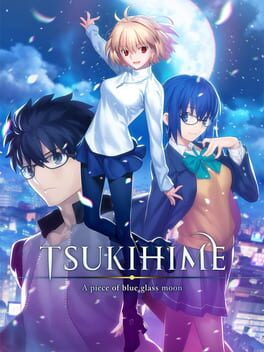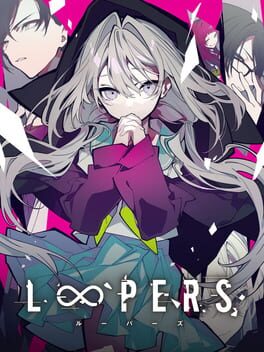Zemania
2016
和式舞台は贔屓で仕方ない
シナリオに於いて佳句点はないが、そんなに見咎める事項が無いということでもある。 登場人物に付いては言うまでもない茉子ちゃんとレナちゃんを先頭に可愛いキャラ許り。
千恋万花の特長はゲーム自体の世界観と思いますし、平たく言えば穂織の町並みである。 本物3次元の観光名所と思しいぐらい魅力に溢れ出した。
ムラサメとレナのルートが特にお気に入りでした。 特にムラサメちゃんのは、街の皆で町おこしという大同団結の為に頑張る乍ら、その中枢は主人公の努力するシーンは見習いたい部分で、こういった青春があればぁと数度思いました。
純愛でベタなイチャラブが見たい時、こういうのを馬鹿にせずに作ってる人たちを有り難い思う。
次に、エロネタも最っ高でした!
取り立てて、レナちゃんのシーンは素晴らしかった。我が身が可愛くてシコいことを自覚している狡猾なエロ雌が、エロゲー界最高糖度を誇る声優種﨑敦美のは緻密嬌声でねちねちと生意気に挑発してくる様子を想像してみてほしい。
お○ん○んが極めてイライラしてくる。
それは仕方がない。
雄性に条件反射ですから。
その上更にお○○いでっっっっか。。。
(追伸: アフターもめっちゃ抜けるよ)
シナリオに於いて佳句点はないが、そんなに見咎める事項が無いということでもある。 登場人物に付いては言うまでもない茉子ちゃんとレナちゃんを先頭に可愛いキャラ許り。
千恋万花の特長はゲーム自体の世界観と思いますし、平たく言えば穂織の町並みである。 本物3次元の観光名所と思しいぐらい魅力に溢れ出した。
ムラサメとレナのルートが特にお気に入りでした。 特にムラサメちゃんのは、街の皆で町おこしという大同団結の為に頑張る乍ら、その中枢は主人公の努力するシーンは見習いたい部分で、こういった青春があればぁと数度思いました。
純愛でベタなイチャラブが見たい時、こういうのを馬鹿にせずに作ってる人たちを有り難い思う。
次に、エロネタも最っ高でした!
取り立てて、レナちゃんのシーンは素晴らしかった。我が身が可愛くてシコいことを自覚している狡猾なエロ雌が、エロゲー界最高糖度を誇る声優種﨑敦美のは緻密嬌声でねちねちと生意気に挑発してくる様子を想像してみてほしい。
お○ん○んが極めてイライラしてくる。
それは仕方がない。
雄性に条件反射ですから。
その上更にお○○いでっっっっか。。。
(追伸: アフターもめっちゃ抜けるよ)
2005
TBD
2006
2022
The general presentation was really top-notch, the grayish and grainy visuals intelligently serve the purpose, i.e. desolate landscapes, ghost cities, or dilapidated towns, looking like refugee camps, in which dystopian microcosms develop, and to which human heart doesn't belong.
But the coolest part is obviously the text itself. It is indeed through Judo's long sentences that we feel the most how much this universe is credible. I wouldn't say that his character is particularly fascinating, but to be immersed in his thoughts in such a raw fashion contributes to the characterization of his emotions, and thus to immersion.
"Fundamental and irrational feelings, only once we rationalize them can we call ourselves human." The desire to become human, the unconditional parental love, both are impulses with no logical basis. The heart of Tsui no Stella is indeed to attach rationality to them as best we can, through prose, through tribulations. But we are also human precisely because we find it difficult to verbalize these things. Romeo does not reveal these truths through flowery and charming dialogues. The interactions are grey, sullen, the men are on edge, and that makes them all the more believable.
Another point that surprised me as much as it pleased me was the focus on a parental relationship instead of a romantic one. This is quite rare in the medium - especially for such a big production. But it was the natural choice here: since being human is about being able to "pass on to the next generation", what better way to illustrate that than a father-daughter relationship?
It's really a good game that I highly recommend (plus it's very short). I have only one desire now and that is to discover the other works of Tanaka Romeo. In particular Saihate no Ima, Kazoku Keikaku and Cross Channel. But until then, I'll cry just a bit more: https://youtu.be/_wmrP0DOj0Q
But the coolest part is obviously the text itself. It is indeed through Judo's long sentences that we feel the most how much this universe is credible. I wouldn't say that his character is particularly fascinating, but to be immersed in his thoughts in such a raw fashion contributes to the characterization of his emotions, and thus to immersion.
"Fundamental and irrational feelings, only once we rationalize them can we call ourselves human." The desire to become human, the unconditional parental love, both are impulses with no logical basis. The heart of Tsui no Stella is indeed to attach rationality to them as best we can, through prose, through tribulations. But we are also human precisely because we find it difficult to verbalize these things. Romeo does not reveal these truths through flowery and charming dialogues. The interactions are grey, sullen, the men are on edge, and that makes them all the more believable.
Another point that surprised me as much as it pleased me was the focus on a parental relationship instead of a romantic one. This is quite rare in the medium - especially for such a big production. But it was the natural choice here: since being human is about being able to "pass on to the next generation", what better way to illustrate that than a father-daughter relationship?
It's really a good game that I highly recommend (plus it's very short). I have only one desire now and that is to discover the other works of Tanaka Romeo. In particular Saihate no Ima, Kazoku Keikaku and Cross Channel. But until then, I'll cry just a bit more: https://youtu.be/_wmrP0DOj0Q
2003
2022
Got charmed by the sweet and heartwarming cover art, as well as by the deep mountain countryside atmosphere... I just love that type of setting.
But it wasn't great in the end. Too short to build something captivating. The little survivalist scenes in the wild are basically all the game has to offer. I would have liked some real flashbacks where you see the scope of the apocalypse firsthand. With such a scenario there was a way to do something bigger, related to the pandemic of the past two years IRL. But I guess the ambition of Natsu no Owari is more modest. honorable mentions to Itou Shizuka's great performance, the Higurashi-style opening, and the bad end which was quite beautiful, despite the fact that I had no attachment whatsoever with the characters.
Kazuki Fumi will be back in November with Zwei Trigger, I'll keep an eye on it.
But it wasn't great in the end. Too short to build something captivating. The little survivalist scenes in the wild are basically all the game has to offer. I would have liked some real flashbacks where you see the scope of the apocalypse firsthand. With such a scenario there was a way to do something bigger, related to the pandemic of the past two years IRL. But I guess the ambition of Natsu no Owari is more modest. honorable mentions to Itou Shizuka's great performance, the Higurashi-style opening, and the bad end which was quite beautiful, despite the fact that I had no attachment whatsoever with the characters.
Kazuki Fumi will be back in November with Zwei Trigger, I'll keep an eye on it.
2023
Massive parody of its own genre that still manages to build engaging arcs, whether they are completely over the top or full of heart. The Gintama of eroge, and I mean it with all the praise and love possible.
I loved how each route felt so different from one another in terms of tone, and also how the SS Big Three kinda stole the spotlight each time. I want to see even more of them in the sequel.
Action scenes felt repetitive and boring though.
I loved how each route felt so different from one another in terms of tone, and also how the SS Big Three kinda stole the spotlight each time. I want to see even more of them in the sequel.
Action scenes felt repetitive and boring though.
Don't expect a masterpiece of literature and philosophy, at least not in English. Dies Irae is just a fun chuunige with over-the-top action and cool chants. I need to reread it in Japanese one day because the translation couldn't reproduce Masada's prose, which is one of the major strengths of the game. The lines just sound corny in English. That's the case in Japanese too, but the game is written in a way that makes you take it seriously.
It remains engaging overall thanks to the cast of charismatic characters and beautiful drawings of G Yuusuke. Fights were a bit too explanatory but very cool. Loved Shirou and Ellie.
It remains engaging overall thanks to the cast of charismatic characters and beautiful drawings of G Yuusuke. Fights were a bit too explanatory but very cool. Loved Shirou and Ellie.
This review contains spoilers
(This is just a draft but since I haven't gone back on this text for weeks, I thought I might as well upload it as it is and come back to it one day, maybe)
What is art? What is beauty? For what purpose are works of art born? For what purpose do we create them?
「我々が何のために作品を作るのか……それさえ見失わなければ問題ない……。そこに刻まれる名が、自分の名前では無いとしてもだ……」
Sakura no Uta is an intimist and philosophical masterpiece which delves into the profundity of Japan’s art history, often even mankind’s, as it explores the meaning of life and art.
PROLOGUE : O wende, wende Deinen Lauf Im Tale Blüht der Frühling auf!
The opening scene is one of the most beautiful things I’ve ever read in my life, and thinking about it with “A Nice Derangement of Epitaphs” in mind intensifies even more its sheer emotional prowess. The dialogues, their prose, the music, CGs, everything in this scene creates an enchanting and much oneiric atmosphere. The reader just has to be seduced by the aesthetic.
I FRÜHLINGSBEGINN
II ABEND
These two first chapters are essentially 20-30 hours of unappealing slice-of-life bits, with dodgy salacious humor. The characters are at this time horrendously bland: they all have one or two traits, they make jokes about them for an hour, and then comes another scene with the same pattern. For 3 weeks, I must have read around 3 hours. I even started a chuuni visual novel because I couldn’t put up with sol content anymore: I almost got filtered out.
Abend’s ending however raises the overall quality quite a bit. The dialogue between Naoya and Komaki on the hospital roof in particular finally teases a bit where SCA-JI wants to lead his readers through Sakuuta. They are roughly discussing man’s propensity to the act of believing in miracles or in God. Naoya says something relatively interesting:
「信じるという事は、目で見る事でも、耳で聞く事でも、その場にいる事でも、 確証する事でもない・・・・・・ ただ信じる事」
「でもそれは何でも信じる事ではない。 ただ単に、むやみに、 考える事をやめるために信じる事ではない。 考えるのをやめるために信じるのは怠惰」
「言葉の先、語る事すら出来ないその先にある何か、 そんなものを信じるのが信 心という感じか?」
「難しい話は良く分からん。 ただ言える事は、人が何かを信じるという事は、最終的に “演繹” でも“帰納” でも“確証” でも “反証” でもないのだろう」
「人は生まれた瞬間から“疑う”事を知ってるわけではない。 疑いを知らない者 が “信じる”事など知るはずもない・・・・・・。 人は“信じる” を知る事によって “疑う”事をはじめて知る事が出来る」
「信じるというのは、 いつだって何の確証もないもんなんだろうな」
« Believing is not listening with your ears, or seeing with your eyes, or something that can be proven logically. Believing is... just believing. But this does not mean believing in anything. It is not a matter of blindly believing by stopping to think. Believing that we should stop thinking is simply laziness. To believe in what is beyond words, in what is beyond what words can describe. Is this what they call faith? The fact that people believe in something does not come from 'inference' or 'induction,' nor from any 'proof' or 'disproof' either." People don't know what "doubt" is from birth. It is impossible for someone who does not know "doubt" to "believe"... People first learn to "doubt" when they learn to "believe". The act of believing is never accompanied by absolute certainty.
These few lines, in front of which the readers of Subahibi have surely shuddered, finally show connections to the metaphysics SCA-JI has been studying in his previous work. We have not yet arrived at the primordial ontological question, but we’re surely laying the groundwork for it. Does it make sense to cling to something so intangible? If one thinks that it doesn’t, then one must be a true optimist or completely detached from reality. Olympia will continue this reflection.
The common route is long, tedious and for the most part utterly boring, but when looking back to these bygone days, after understanding Naoya’s pain, and why they’re voluntarily written in such a cliché fashion, one cannot help but feel a deep feeling of nostalgia and grief. This is the type of stuff that gets better on a reread.
「ありがとう在りし日」
III PICAPICA
Nice pure romance that didn’t feature anything deep regarding Naoya’s character – besides a few callbacks to his arm’s injury. He says it himself at the end of the route: “Between us [Makoto and him], there isn’t any painful past, deep scars, or anything of the sort. There’s just love.” By far the lightest route in this regard, though the ending didn’t feel lackluster in any way, maybe because my standards had fallen off after common route.
Two scenes I loved a lot:
- Toritani mama’s first onscreen interaction with Onda mama. When she said: 「そうして、 あなたは泣いてばかりで、 子どもまであなたの犠牲になるのを ただ指をくわえて見ているだけなのかと」「私は、守るわ」「血が繋がっていても、繋がっていなくても、私の子だと決めたのだから、私は私のやりかたで守る」"Do you plan to sit back and do nothing, just whine, and see how your children suffer because of you? I will protect him. Whether we share the same blood or not, I have decided to make him my son, and so I will protect him. In my own way." I couldn’t help but feel emotional. I had thought the principal would just be a cold-blooded antagonist but she certainly wasn’t; this was just the beginning of her greatness.
- Kei’s image of Naoya, told by Makoto after rescuing him from falling down the stairs: 「圭はね、 草薙はヒーローみたいだって」The CG of her stroking Kei’s hair was beautiful, one can truly feel the 姉弟 love. It hits even more with chapter V’s events in mind…
III OLYMPIA
Rin’s route could be divided into non-stop bawdy yet entertaining banter, and an exciting climax that got me drooling out of focus – my standards truly got hard reset. The whole build-up towards the huge revelation is cleverly executed and, until the very end, although I had a rough idea of the past Naoya and Rin shared, I couldn’t exactly guess what had happened to them.
My favorite dialogue of Olympia is the one between Naoya and Misakura papa. These lines especially:
「さあ・・・・・・。でも目に見えたから事実というわけでもないでしょう。摩訶不思議だと思われたものも、実はまったく不可解なものでもない日常かもしれない」「また、 ありふれた日常だって、 もしかしたら摩訶不思議な現象の一部かもしれ ない・・・・・・」「でも、誰でも分かっているはずなんです。人が不可解さの前に立ち、一番大事なのは説明でも解釈でもない事など・・・・・・」「だって、 それが説明しつくされた後でも、人はその不可解さの前で、 何度でも 立ち尽くしてしまうのだから ......」「目覚めない夢。 それは現実と変わらないだろう。 むしろ目覚めないのならば現実と言っても良いかもしれない」
“Just because you see something doesn't mean it's true. What we think of as profoundly mysterious may in fact not be mysterious at all, but simply an occurrence of the everyday [if 日々had been used instead of 日常, I would have acted UP]. Everyone should know that. When one stands in the face of the inexplicable, the most important thing is neither explanation nor interpretation. Because once it has been fully explained, one stands again and again in the face of the inexplicable.”
It kind of echoes Takuji’s “Recognzie all that is irrational. Accept all that is absurd. And then. Then Search your heart.” What one needs is faith. Faith is something intangible that guarantees one’s reality. If such a fundamental principle isn’t clearly established, one would simply fall into a causal emptiness, an endless sequence of “why” that would ultimately lead to… nothing. Heideggerian ontology is what supports all Subahibi’s philosophical methods and here in Sakuuta, we finally see it being used efficiently, although in a more concise fashion compared to the slow groundwork of DTRH. Noaya later quotes this verse from the Bible (John 20:29): “Because you have seen me, you have believed; blessed are those who have not seen and yet have believed.” At this point, what matters isn’t necessarily examining what’s real or not, but rather putting wholehearted feelings into loving what supports your world. This is the onto-theological metaphysical approach.
“A dream from which one never awakens. It would be no different from one’s reality. In fact, if one never wakes up, one might as well call it reality."
This last line looks like it’s been taken from Subahibi. Something Kimika would scream to Takuji’s followers before jumping from the roof. Subahibi however went even further: what if, when confronted with the abyss, we decided neither to turn back (ontic), nor to simply admire its depth (fundamental ontology), nor to stretch a rope to overcome it (Olympia’s ontotheology), but to analyze it methodically? SCA-JI proposed in Subahibi an ontology (simply “ontology”) by trying to draw up, in the manner of Heidegger, the analysis of what makes beings beings – what makes them exist. What makes the "real world" real?
When one first read this dialogue, one doesn’t know precisely that they’re talking about Rin’s fantasy, but after “everything” – stressing this out since the full truth is still hidden from all the protagonists concerned – has been revealed, it all makes sense on a more practical scale than the metaphysical level. This is a first hint of how Sakuuta will play with the reader’s expectations for the future, sometimes unraveling the hidden sense of some conversations dozens of hours after they took place.
When Rin jumped from the roof, she said: 「月の目玉に触れた感じがした。」(“It felt like I had touched the eyeball of the moon”); a nice callback to that one creepy Suba CG.
The mysterious exchange between Sui and Shizuku at the end of the route finally marked the end of what I consider as the first part of the game. From now on, every chapter will be plot-relevant and will unravel one mystery at a time. Although at this point of the story, it was hard to explicitly identify them.
III ZYPRESSEN
「こんな狂った嵐の夜なら――そうだな――そろそろ花をつけてもいい時期だと思ってな」
This route finally made me fall in love with Sakuuta. The narration – especially Yuumi’s during the flashback –, Naoya’s development, the symbolism in almost every scene, the background story with Hakuki and Yoshisada: Zypressen felt like a true fairy tale. Although there isn’t that much food for thought for me, this chapter is beautiful and beautifully written. So many iconic lines:
「だって、俺が自分の好みの娘に変えたんだ」「死を受け入れ、 それを享受し、 そして生を見つめる」「そんな、今のお前が俺は好きだよ」(seriously, the love declarations in this game are on a whole other level)
「人の出会い・・・・・・いや、それ以上かな。作品との出会いって、言葉以上のものが伝わります」
「俺は好きなヤツしか抱かん! むしろ一生一穴主義だ! だから現在絶賛童貞 中なんだ!」
III A NICE DERANGEMENT OF EPITAPHS
Kicking off very strong with probably of the most beautiful 告白 I’ve ever seen, full of passion and mystery:
「お前の一番大切なものを俺にくれよ」「草薙健一郎が、 夏目藍が、 夏目圭が、 そして御桜稟が与えたものさ」「もちろん、俺が与えたものでもある・・・・・・」「お前の心だよ・・・・・・」健一郎は小さく笑った。
Naoya acknowledging Kenichirou as a father gave me teary eyes: 「だが、俺は一人で育ったわけじゃないさ」「あんたがいて、母さんがいて、そして夏目家の連中とかいろいろな奴らがいて
The best lines of the route to me were definitely Kenichirou’s when signing Naoya's forgeries:
「これは、お前が俺に捧げた墓碑銘だ。 だから俺は、ここに自分の名を刻む」 「これは俺の作品じゃない」 「俺の死のために、草薙直哉が描いてくれた作品だ」 「俺の墓は花であふれているだろう。だがそんなものは見せかけだ。 本当の墓は、この絵の傍らにある」 「……今夜、ごく先刻、俺は死んだ夢を見た。 妙なことに、それは、俺は幸せに暮らした瞬間だった」 「直哉、ありがとうよ」 「俺にふさわしい絵だ。こういう絵こそ、俺の死に捧げられる作品だ……」 「良い人生だった……」 「こんな事があるのだからな……」 「……」 「絵というものは良いものだ……」 「多くの人は、感情に言葉をのせて語る」 「だが、発話というのは、これはなかなか虚しいものだ」 「だから、多くの賢者は沈黙する」 「無駄なおしゃべりは、身体を濁らす」 「濁った身体からは、煙の様な言葉しか生まれない」 「だが、芸術に無駄なおしゃべりは必要ない」 「研ぎ澄まされた意味だけが浮かび上がる」 「A Nice Derangement of Epitaphs」 「この作品はそう扱われるだろう……」 「だが、それで良い」 「これは、俺のための墓碑銘なのだからな……」
Fiction peaked, I was sobbing, what can I say.
IV WHAT IS MIND? NO MATTER. WHAT IS MATTER? NEVER MIND.
No words. I loved every second of it.
V THE HAPPY PRINCE AND OTHER TALES
And there it is, the strongest chapter in terms of philosophy.
「芸術は残酷なものだよ」「夢は人を喰らい。 喰らった夢は、 芸術という実を熟す」「熟した果実は、地に落ちて、人々を潤す」「それがどの様な果実であるかなど、 分かりもせずに人々はその甘さだけを褒め称える」
"Art is a cruel thing. Dreams devour people, and it is the fruit of this digestion that gives birth to art. Once this fruit ripens, it falls to the ground and enriches men. They savor it and praise its sweetness, without really understanding its origin."
> Naoya/Rin final dialogue, their opposition
"Dieu n'appartient pas au savant, au logicien, il est aux poètes, au rêve, il est le symbole de la Beauté, la Beauté même. Le définir, ou le prier, c'est le limiter." D'où venons-nous? Que sommes-nous? Où allons nous ? (Paul Gauguin, 1898)
The philosophy of art Rin tries to convey seems similar to Kant’s in his Critique of Judgment.
In what sense does the idea of God serve us to think, not only of scientific progress but of the experience of beauty? To understand it, one must keep in mind the fact that in the divine understanding, in the mind of God – if we can speak of such an entity in such a way –, sensibility and concept would finally be perfectly reconciled. According to classical theology, God is omniscient. He sees and knows everything, which means that for him there is no longer any opaque and incomprehensible sensibility: from his point of view, the world is through and through intelligible, God is not limited by space and time, by the opacity of the world. God would be the one in whom sensibility and understanding, sensible and intelligible, spirit and matter, form and content, etc. would consequently be fully reconciled, melted so to speak in each other.
Now, the work of art is nothing else than a kind of quasi-miraculous reconciliation of the sensible and the intelligible. When you listen to music – take the game’s opening song on piano for example –, it is a bit like a story being told to a child: there is a beginning, a development, and an end, there are obviously ideas and emotions, some sort of logic of of the musical phenomenon, what musicians call the "phrasing". One can feel that the melody is sad or joyful, alive or deadly, a prayer or a love song. However, music does not convey concepts strictly speaking, it only includes the sensible, the material, sound vibrations, but everything happens as if this sensible, this material, made a sign of itself towards the intelligible, as if it made sense: it is this strange reconciliation of the sensible and the intelligible which evokes in us the idea of the divine.
It is thus that, like the scientist, the artist is always in contact with God, even when he ignores it and that he is atheist. Art embodies the reconciliation of the sensible and the intelligible, a conception that will take back, after Kant, the great German Romantics. The work of art is a kind of presentation (Darstellung) of this ideal that would represent the divine in terms of harmony between the sensible and the intelligible. It is indissolubly sensible and intelligible, it gives sense, of the intelligible, whereas it is however only material and sensible. The example of music is undoubtedly the most telling, but it is the same in the other arts, for example for painting: it is never but a pure material, the crust of colors put on a canvas, but the least one can say is that the pictorial art does not cease either to put in scene ideas. There again, we have, without concept, sensitive which makes itself intelligible. The Beautiful is what pleases universally without concept, writes Kant. If we did not have in us the idea of God, the pleasure that one feels in the contemplation of a work of art would not be the same.
The story is now over, the characters have received their conclusion...but the curtain has strangely not been drawn. They are still on stage, facing their finality. Ten, Muramasa and now Sakuuta. So I will walk under the cherry trees one last time tomorrow.
VI 櫻の森の下を歩む
Conclusion:
It was a bit rough to get into at the start but once I got to Zypressen, I started to really enjoy it and was hooked. I can't imagine reading this in 2015 and waiting 7 years for the conclusion to Naoya and Kei's arc. It was kind of rough to see how everything fell apart towards the end and see Naoya waste years of his life in limbo until he got the spark to continue moving forward. If he had completely abandoned his and Kei's dream, that would had been extremely rough. Especially with how things ended with Rin. Overall, it had some bumps but was a good read once it got going. I'm looking forward to November and hope it will get a full conclusion.
Sakutoki has everything to be unforgettable, the playground is huge.
What is art? What is beauty? For what purpose are works of art born? For what purpose do we create them?
「我々が何のために作品を作るのか……それさえ見失わなければ問題ない……。そこに刻まれる名が、自分の名前では無いとしてもだ……」
Sakura no Uta is an intimist and philosophical masterpiece which delves into the profundity of Japan’s art history, often even mankind’s, as it explores the meaning of life and art.
PROLOGUE : O wende, wende Deinen Lauf Im Tale Blüht der Frühling auf!
The opening scene is one of the most beautiful things I’ve ever read in my life, and thinking about it with “A Nice Derangement of Epitaphs” in mind intensifies even more its sheer emotional prowess. The dialogues, their prose, the music, CGs, everything in this scene creates an enchanting and much oneiric atmosphere. The reader just has to be seduced by the aesthetic.
I FRÜHLINGSBEGINN
II ABEND
These two first chapters are essentially 20-30 hours of unappealing slice-of-life bits, with dodgy salacious humor. The characters are at this time horrendously bland: they all have one or two traits, they make jokes about them for an hour, and then comes another scene with the same pattern. For 3 weeks, I must have read around 3 hours. I even started a chuuni visual novel because I couldn’t put up with sol content anymore: I almost got filtered out.
Abend’s ending however raises the overall quality quite a bit. The dialogue between Naoya and Komaki on the hospital roof in particular finally teases a bit where SCA-JI wants to lead his readers through Sakuuta. They are roughly discussing man’s propensity to the act of believing in miracles or in God. Naoya says something relatively interesting:
「信じるという事は、目で見る事でも、耳で聞く事でも、その場にいる事でも、 確証する事でもない・・・・・・ ただ信じる事」
「でもそれは何でも信じる事ではない。 ただ単に、むやみに、 考える事をやめるために信じる事ではない。 考えるのをやめるために信じるのは怠惰」
「言葉の先、語る事すら出来ないその先にある何か、 そんなものを信じるのが信 心という感じか?」
「難しい話は良く分からん。 ただ言える事は、人が何かを信じるという事は、最終的に “演繹” でも“帰納” でも“確証” でも “反証” でもないのだろう」
「人は生まれた瞬間から“疑う”事を知ってるわけではない。 疑いを知らない者 が “信じる”事など知るはずもない・・・・・・。 人は“信じる” を知る事によって “疑う”事をはじめて知る事が出来る」
「信じるというのは、 いつだって何の確証もないもんなんだろうな」
« Believing is not listening with your ears, or seeing with your eyes, or something that can be proven logically. Believing is... just believing. But this does not mean believing in anything. It is not a matter of blindly believing by stopping to think. Believing that we should stop thinking is simply laziness. To believe in what is beyond words, in what is beyond what words can describe. Is this what they call faith? The fact that people believe in something does not come from 'inference' or 'induction,' nor from any 'proof' or 'disproof' either." People don't know what "doubt" is from birth. It is impossible for someone who does not know "doubt" to "believe"... People first learn to "doubt" when they learn to "believe". The act of believing is never accompanied by absolute certainty.
These few lines, in front of which the readers of Subahibi have surely shuddered, finally show connections to the metaphysics SCA-JI has been studying in his previous work. We have not yet arrived at the primordial ontological question, but we’re surely laying the groundwork for it. Does it make sense to cling to something so intangible? If one thinks that it doesn’t, then one must be a true optimist or completely detached from reality. Olympia will continue this reflection.
The common route is long, tedious and for the most part utterly boring, but when looking back to these bygone days, after understanding Naoya’s pain, and why they’re voluntarily written in such a cliché fashion, one cannot help but feel a deep feeling of nostalgia and grief. This is the type of stuff that gets better on a reread.
「ありがとう在りし日」
III PICAPICA
Nice pure romance that didn’t feature anything deep regarding Naoya’s character – besides a few callbacks to his arm’s injury. He says it himself at the end of the route: “Between us [Makoto and him], there isn’t any painful past, deep scars, or anything of the sort. There’s just love.” By far the lightest route in this regard, though the ending didn’t feel lackluster in any way, maybe because my standards had fallen off after common route.
Two scenes I loved a lot:
- Toritani mama’s first onscreen interaction with Onda mama. When she said: 「そうして、 あなたは泣いてばかりで、 子どもまであなたの犠牲になるのを ただ指をくわえて見ているだけなのかと」「私は、守るわ」「血が繋がっていても、繋がっていなくても、私の子だと決めたのだから、私は私のやりかたで守る」"Do you plan to sit back and do nothing, just whine, and see how your children suffer because of you? I will protect him. Whether we share the same blood or not, I have decided to make him my son, and so I will protect him. In my own way." I couldn’t help but feel emotional. I had thought the principal would just be a cold-blooded antagonist but she certainly wasn’t; this was just the beginning of her greatness.
- Kei’s image of Naoya, told by Makoto after rescuing him from falling down the stairs: 「圭はね、 草薙はヒーローみたいだって」The CG of her stroking Kei’s hair was beautiful, one can truly feel the 姉弟 love. It hits even more with chapter V’s events in mind…
III OLYMPIA
Rin’s route could be divided into non-stop bawdy yet entertaining banter, and an exciting climax that got me drooling out of focus – my standards truly got hard reset. The whole build-up towards the huge revelation is cleverly executed and, until the very end, although I had a rough idea of the past Naoya and Rin shared, I couldn’t exactly guess what had happened to them.
My favorite dialogue of Olympia is the one between Naoya and Misakura papa. These lines especially:
「さあ・・・・・・。でも目に見えたから事実というわけでもないでしょう。摩訶不思議だと思われたものも、実はまったく不可解なものでもない日常かもしれない」「また、 ありふれた日常だって、 もしかしたら摩訶不思議な現象の一部かもしれ ない・・・・・・」「でも、誰でも分かっているはずなんです。人が不可解さの前に立ち、一番大事なのは説明でも解釈でもない事など・・・・・・」「だって、 それが説明しつくされた後でも、人はその不可解さの前で、 何度でも 立ち尽くしてしまうのだから ......」「目覚めない夢。 それは現実と変わらないだろう。 むしろ目覚めないのならば現実と言っても良いかもしれない」
“Just because you see something doesn't mean it's true. What we think of as profoundly mysterious may in fact not be mysterious at all, but simply an occurrence of the everyday [if 日々had been used instead of 日常, I would have acted UP]. Everyone should know that. When one stands in the face of the inexplicable, the most important thing is neither explanation nor interpretation. Because once it has been fully explained, one stands again and again in the face of the inexplicable.”
It kind of echoes Takuji’s “Recognzie all that is irrational. Accept all that is absurd. And then. Then Search your heart.” What one needs is faith. Faith is something intangible that guarantees one’s reality. If such a fundamental principle isn’t clearly established, one would simply fall into a causal emptiness, an endless sequence of “why” that would ultimately lead to… nothing. Heideggerian ontology is what supports all Subahibi’s philosophical methods and here in Sakuuta, we finally see it being used efficiently, although in a more concise fashion compared to the slow groundwork of DTRH. Noaya later quotes this verse from the Bible (John 20:29): “Because you have seen me, you have believed; blessed are those who have not seen and yet have believed.” At this point, what matters isn’t necessarily examining what’s real or not, but rather putting wholehearted feelings into loving what supports your world. This is the onto-theological metaphysical approach.
“A dream from which one never awakens. It would be no different from one’s reality. In fact, if one never wakes up, one might as well call it reality."
This last line looks like it’s been taken from Subahibi. Something Kimika would scream to Takuji’s followers before jumping from the roof. Subahibi however went even further: what if, when confronted with the abyss, we decided neither to turn back (ontic), nor to simply admire its depth (fundamental ontology), nor to stretch a rope to overcome it (Olympia’s ontotheology), but to analyze it methodically? SCA-JI proposed in Subahibi an ontology (simply “ontology”) by trying to draw up, in the manner of Heidegger, the analysis of what makes beings beings – what makes them exist. What makes the "real world" real?
When one first read this dialogue, one doesn’t know precisely that they’re talking about Rin’s fantasy, but after “everything” – stressing this out since the full truth is still hidden from all the protagonists concerned – has been revealed, it all makes sense on a more practical scale than the metaphysical level. This is a first hint of how Sakuuta will play with the reader’s expectations for the future, sometimes unraveling the hidden sense of some conversations dozens of hours after they took place.
When Rin jumped from the roof, she said: 「月の目玉に触れた感じがした。」(“It felt like I had touched the eyeball of the moon”); a nice callback to that one creepy Suba CG.
The mysterious exchange between Sui and Shizuku at the end of the route finally marked the end of what I consider as the first part of the game. From now on, every chapter will be plot-relevant and will unravel one mystery at a time. Although at this point of the story, it was hard to explicitly identify them.
III ZYPRESSEN
「こんな狂った嵐の夜なら――そうだな――そろそろ花をつけてもいい時期だと思ってな」
This route finally made me fall in love with Sakuuta. The narration – especially Yuumi’s during the flashback –, Naoya’s development, the symbolism in almost every scene, the background story with Hakuki and Yoshisada: Zypressen felt like a true fairy tale. Although there isn’t that much food for thought for me, this chapter is beautiful and beautifully written. So many iconic lines:
「だって、俺が自分の好みの娘に変えたんだ」「死を受け入れ、 それを享受し、 そして生を見つめる」「そんな、今のお前が俺は好きだよ」(seriously, the love declarations in this game are on a whole other level)
「人の出会い・・・・・・いや、それ以上かな。作品との出会いって、言葉以上のものが伝わります」
「俺は好きなヤツしか抱かん! むしろ一生一穴主義だ! だから現在絶賛童貞 中なんだ!」
III A NICE DERANGEMENT OF EPITAPHS
Kicking off very strong with probably of the most beautiful 告白 I’ve ever seen, full of passion and mystery:
「お前の一番大切なものを俺にくれよ」「草薙健一郎が、 夏目藍が、 夏目圭が、 そして御桜稟が与えたものさ」「もちろん、俺が与えたものでもある・・・・・・」「お前の心だよ・・・・・・」健一郎は小さく笑った。
Naoya acknowledging Kenichirou as a father gave me teary eyes: 「だが、俺は一人で育ったわけじゃないさ」「あんたがいて、母さんがいて、そして夏目家の連中とかいろいろな奴らがいて
The best lines of the route to me were definitely Kenichirou’s when signing Naoya's forgeries:
「これは、お前が俺に捧げた墓碑銘だ。 だから俺は、ここに自分の名を刻む」 「これは俺の作品じゃない」 「俺の死のために、草薙直哉が描いてくれた作品だ」 「俺の墓は花であふれているだろう。だがそんなものは見せかけだ。 本当の墓は、この絵の傍らにある」 「……今夜、ごく先刻、俺は死んだ夢を見た。 妙なことに、それは、俺は幸せに暮らした瞬間だった」 「直哉、ありがとうよ」 「俺にふさわしい絵だ。こういう絵こそ、俺の死に捧げられる作品だ……」 「良い人生だった……」 「こんな事があるのだからな……」 「……」 「絵というものは良いものだ……」 「多くの人は、感情に言葉をのせて語る」 「だが、発話というのは、これはなかなか虚しいものだ」 「だから、多くの賢者は沈黙する」 「無駄なおしゃべりは、身体を濁らす」 「濁った身体からは、煙の様な言葉しか生まれない」 「だが、芸術に無駄なおしゃべりは必要ない」 「研ぎ澄まされた意味だけが浮かび上がる」 「A Nice Derangement of Epitaphs」 「この作品はそう扱われるだろう……」 「だが、それで良い」 「これは、俺のための墓碑銘なのだからな……」
Fiction peaked, I was sobbing, what can I say.
IV WHAT IS MIND? NO MATTER. WHAT IS MATTER? NEVER MIND.
No words. I loved every second of it.
V THE HAPPY PRINCE AND OTHER TALES
And there it is, the strongest chapter in terms of philosophy.
「芸術は残酷なものだよ」「夢は人を喰らい。 喰らった夢は、 芸術という実を熟す」「熟した果実は、地に落ちて、人々を潤す」「それがどの様な果実であるかなど、 分かりもせずに人々はその甘さだけを褒め称える」
"Art is a cruel thing. Dreams devour people, and it is the fruit of this digestion that gives birth to art. Once this fruit ripens, it falls to the ground and enriches men. They savor it and praise its sweetness, without really understanding its origin."
> Naoya/Rin final dialogue, their opposition
"Dieu n'appartient pas au savant, au logicien, il est aux poètes, au rêve, il est le symbole de la Beauté, la Beauté même. Le définir, ou le prier, c'est le limiter." D'où venons-nous? Que sommes-nous? Où allons nous ? (Paul Gauguin, 1898)
The philosophy of art Rin tries to convey seems similar to Kant’s in his Critique of Judgment.
In what sense does the idea of God serve us to think, not only of scientific progress but of the experience of beauty? To understand it, one must keep in mind the fact that in the divine understanding, in the mind of God – if we can speak of such an entity in such a way –, sensibility and concept would finally be perfectly reconciled. According to classical theology, God is omniscient. He sees and knows everything, which means that for him there is no longer any opaque and incomprehensible sensibility: from his point of view, the world is through and through intelligible, God is not limited by space and time, by the opacity of the world. God would be the one in whom sensibility and understanding, sensible and intelligible, spirit and matter, form and content, etc. would consequently be fully reconciled, melted so to speak in each other.
Now, the work of art is nothing else than a kind of quasi-miraculous reconciliation of the sensible and the intelligible. When you listen to music – take the game’s opening song on piano for example –, it is a bit like a story being told to a child: there is a beginning, a development, and an end, there are obviously ideas and emotions, some sort of logic of of the musical phenomenon, what musicians call the "phrasing". One can feel that the melody is sad or joyful, alive or deadly, a prayer or a love song. However, music does not convey concepts strictly speaking, it only includes the sensible, the material, sound vibrations, but everything happens as if this sensible, this material, made a sign of itself towards the intelligible, as if it made sense: it is this strange reconciliation of the sensible and the intelligible which evokes in us the idea of the divine.
It is thus that, like the scientist, the artist is always in contact with God, even when he ignores it and that he is atheist. Art embodies the reconciliation of the sensible and the intelligible, a conception that will take back, after Kant, the great German Romantics. The work of art is a kind of presentation (Darstellung) of this ideal that would represent the divine in terms of harmony between the sensible and the intelligible. It is indissolubly sensible and intelligible, it gives sense, of the intelligible, whereas it is however only material and sensible. The example of music is undoubtedly the most telling, but it is the same in the other arts, for example for painting: it is never but a pure material, the crust of colors put on a canvas, but the least one can say is that the pictorial art does not cease either to put in scene ideas. There again, we have, without concept, sensitive which makes itself intelligible. The Beautiful is what pleases universally without concept, writes Kant. If we did not have in us the idea of God, the pleasure that one feels in the contemplation of a work of art would not be the same.
The story is now over, the characters have received their conclusion...but the curtain has strangely not been drawn. They are still on stage, facing their finality. Ten, Muramasa and now Sakuuta. So I will walk under the cherry trees one last time tomorrow.
VI 櫻の森の下を歩む
Conclusion:
It was a bit rough to get into at the start but once I got to Zypressen, I started to really enjoy it and was hooked. I can't imagine reading this in 2015 and waiting 7 years for the conclusion to Naoya and Kei's arc. It was kind of rough to see how everything fell apart towards the end and see Naoya waste years of his life in limbo until he got the spark to continue moving forward. If he had completely abandoned his and Kei's dream, that would had been extremely rough. Especially with how things ended with Rin. Overall, it had some bumps but was a good read once it got going. I'm looking forward to November and hope it will get a full conclusion.
Sakutoki has everything to be unforgettable, the playground is huge.
2021
Short, heartfelt, and of genuine depth. A love letter telling us that happiness is something you have to seek out for yourself, every day being a new treasure hunt.
Everything is carried by great music (honorable mentions to the guitar tracks and sajou no hana songs), cool and cute designs, and above all by a duo of protagonists with strong personalities.
As for the other characters, they managed to characterize their identity, even though the credits for this should more go to Kei Mochizuki's beautiful designs than to their psychology and actions.
The artificiality of the time loop system doesn't help much on this point.
The intro features Ryukishi's writing tropes (albeit awkwardly presented) but he conformed to Key studio's codes for most of the story (good atmosphere + tears at the end). So don't expect mystery or horror.
All in all I had a good time, a nice little summer read.
Everything is carried by great music (honorable mentions to the guitar tracks and sajou no hana songs), cool and cute designs, and above all by a duo of protagonists with strong personalities.
As for the other characters, they managed to characterize their identity, even though the credits for this should more go to Kei Mochizuki's beautiful designs than to their psychology and actions.
The artificiality of the time loop system doesn't help much on this point.
The intro features Ryukishi's writing tropes (albeit awkwardly presented) but he conformed to Key studio's codes for most of the story (good atmosphere + tears at the end). So don't expect mystery or horror.
All in all I had a good time, a nice little summer read.


